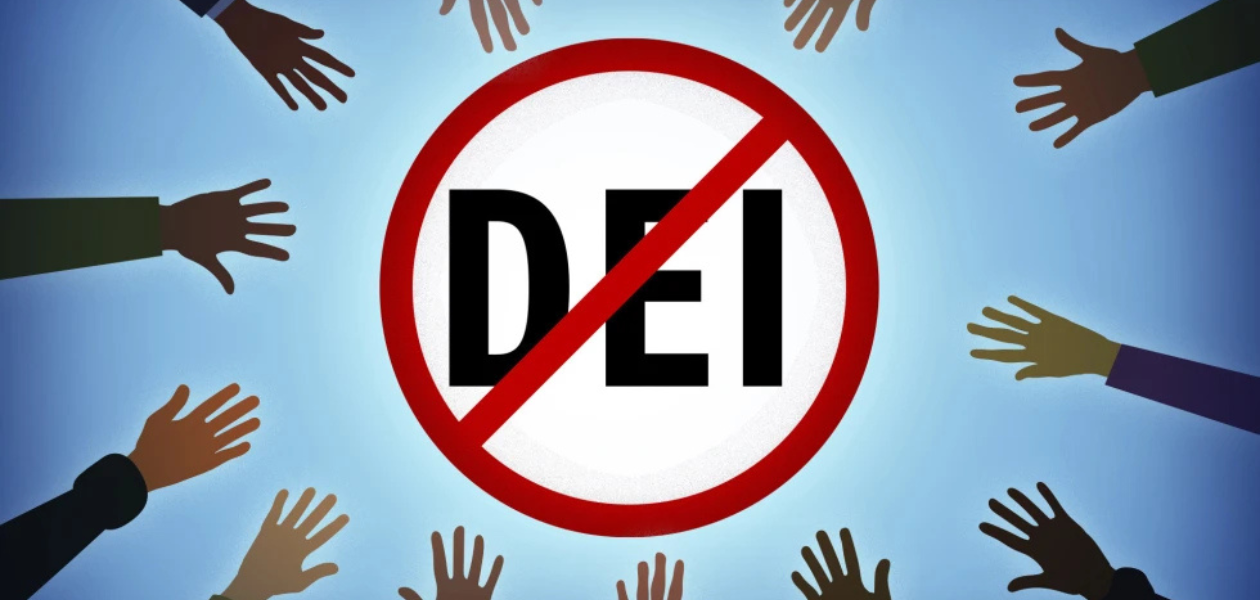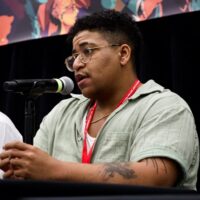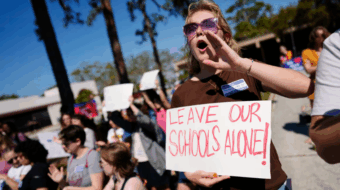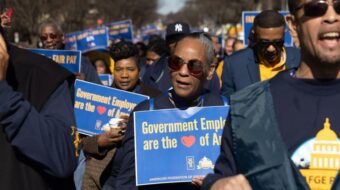
ORLANDO—When Big Business and far-right politicians wage war on Diversity, Equity, and Inclusion (DEI), workers need more than vague assurances from corporations—they need enforceable protections codified in federal law and in collective bargaining agreements. That’s why labor leaders at the 54th Coalition of Black Trade Unionists (CBTU) International Convention made it clear that DEI must be cemented into union contracts in the first place.
“Black excellence is not a fluke…it’s inseparable from the greatness that we say this country is!” declared Rev. Terry L. Melvin, President of CBTU, setting the tone for a convention centered on defending Black workers from the fascistic attacks on the labor movement and, in doing so, defending the rights of all workers, regardless of race, in the United States.
The stakes couldn’t be higher, said AFL-CIO President Liz Shuler, who drew a direct line between today’s battles and the Civil Rights Movement. “There’s a reason in the 1960s and 70s, the Civil Rights Movement and labor movement came together. It was because we knew being divided did not serve us.”
She warned that the Trump administration’s efforts to erase Black history and dismantle DEI initiatives are a push to revive “the days of hatred and division.” Building unity between the labor movement and the civil rights movement was repeatedly stressed all weekend.
Why union contracts matter
For Black workers, the assault on DEI isn’t something abstract—it’s direct economic sabotage and creates an even more unequal division of society, allowing bosses to more thoroughly exploit all workers. Everett Kelley, President of the American Federation of Government Employees (AFGE), put it bluntly: “Black workers are being targeted; plain and simple.”
Federal jobs, long a gateway to higher living standards for Black Americans, are under siege. According to the Bureau of Labor Statistics, Black workers make up 18% of the federal workforce—5% higher than their share of the U.S. population—making attacks on these jobs disproportionately impact Black workers. When you factor in the Postal Workers, nearly 30% of these workers are Black. And, every day the attacks on the federal workforce continue, the days when the entire union movement and all workers come under attack grow closer.
But the threat goes deeper. Far-right agendas like Project 2025 have pushed to eliminate the collection of racial employment data by the Equal Employment Opportunity Commission (EEOC), making the phony argument that tracking workforce demographics could lead to “discrimination” claims—a thinly veiled attempt to dismantle accountability for racial bias and discrimination. Without this data, proving systemic discrimination becomes nearly impossible, paving the way for further oppression of Black workers.
The consequences are already visible. Under Trump’s current administration, mass federal job cuts by Elon Musk’s “Department of Government Efficiency” disproportionately impacted Black workers. For example, if out of the 260,000 federal workers who lost their jobs or retired early, nearly 50,000 of them were likely Black workers. These cuts, framed as eliminating “waste, fraud, and abuse,” function as a “race-neutral” facade for policies that will systematically push Black workers out of previously stable government jobs.
The danger extends beyond employment. Trump’s recent executive order, ostensibly aimed at “strengthening law enforcement,” opens the door for military involvement in policing while rolling back consent decrees that held discriminatory police departments accountable. The language of “criminals” and “innocent citizens” in such policies has always carried racist undertones—and no one should mistake who will bear the brunt of these measures—Black workers.
April Lott, President of AFGE Local 3627 and a longtime federal employee, knows the value of these opportunities firsthand. “I started working for the federal government straight out of high school,” she told People’s World. “This is what we want for the next generation—good jobs that let them provide for their families and build a future.”

But without strong safeguards, both in federal policy and the workplace, those opportunities can vanish. “Corporations can promise you all day long,” Lott said, “but that union contract is a solid document.” She stressed to People’s World that embedding DEI in contracts ensures fairness for all workers—“regardless of color, race, gender, or sexual orientation.”
Gary Grant, Civil Rights Director of UAW Local 7, echoed the sentiment: “We have to protect [DEI], and the only way to protect it truly is with a union contract.” Even amid corporate rollbacks, he argued, workers must fight to lock in protections because “CEOs have their own interests. And we [workers] have our own interests.”
The convention closed with delegates passing a resolution to “prioritize equity-based contract language”—a concrete step toward shielding DEI from political backlash embedded in union collective bargaining agreements. As Melvin put it: “DEI has made America and the world better, not worse. So don’t run from it, run to it. And…knock them the hell over!”
We hope you appreciated this article. At People’s World, we believe news and information should be free and accessible to all, but we need your help. Our journalism is free of corporate influence and paywalls because we are totally reader-supported. Only you, our readers and supporters, make this possible. If you enjoy reading People’s World and the stories we bring you, please support our work by donating or becoming a monthly sustainer today. Thank you!










